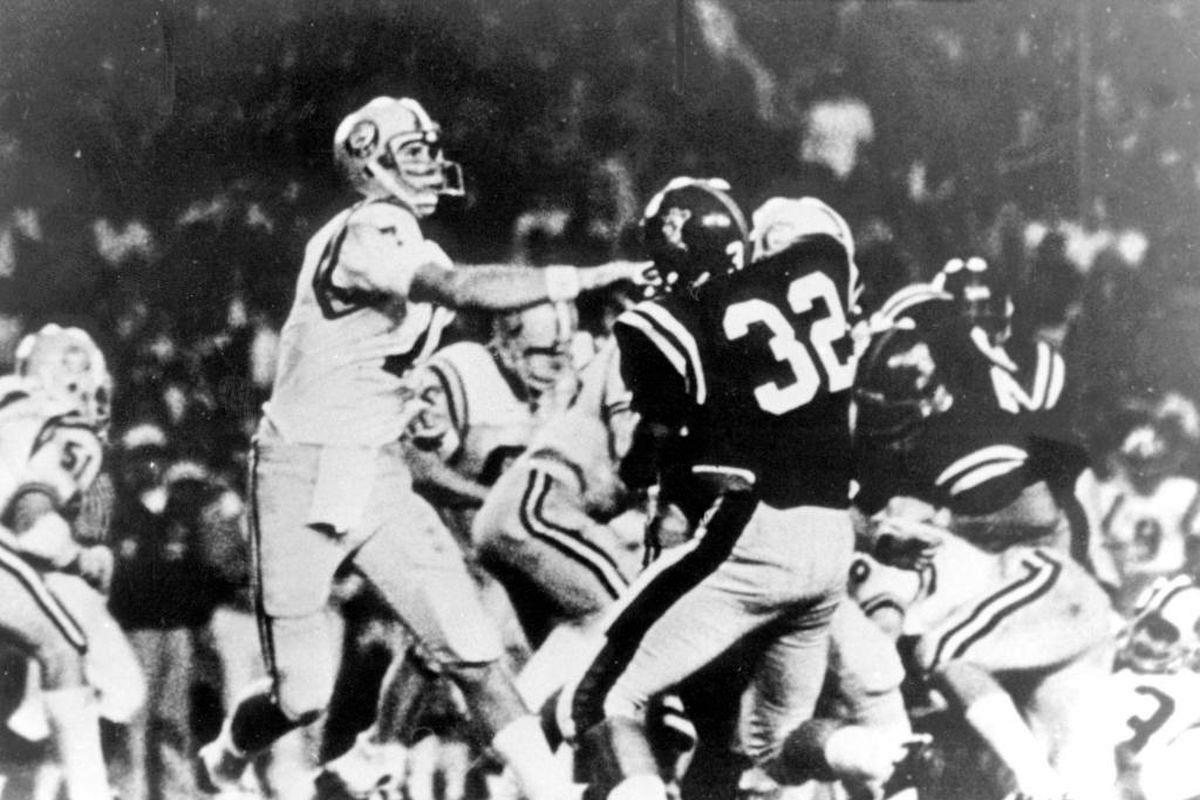LSU-Ole Miss Rivalry: Remembering “The Night Time Stood Still” 50 years later

The LSU-Ole Miss football matchup appears on the schedule this week. It’s a game that has always been a heated rivalry regardless of records. Being conference schools from neighboring states plays into it but there’s more to it than that.
LSU owns the all-time lead in the series, 64-41-4. The Tigers have won the past nine out of 10 times the teams played in Baton Rouge.
Perhaps the most memorable moment in the series, certainly from LSU’s perspective, was when Billy Cannon made his historic punt return in 1959 at Tiger Stadium.
Besides Cannon’s run, there was another memorable tango between the two SEC foes that took place November 4, 1972 in Baton Rouge in front of over 70,000 fans.
LSU was undefeated going into the game and ranked sixth nationally. Ole Miss came in with a 4-3 record. This year marks the golden anniversary of that game. The finish is the part fans of both programs will not soon forget. It was the night when time stood still, or so it seemed to Ole Miss faithful.
The Rebels took an early 3-0 lead on freshman Steve Lavinghouze’s 42 yard field. Bert Jones, the Ruston Rifle, directed a 12-play, 75-yard drive capped by his six-yard touchdown dive giving the Tigers a 7-3 lead. Shortly thereafter, LSU kicker Rusty Jackson converted on a short field goal bumping the LSU lead to 10-3. Lavinghouze added a 38 yard kick with two minutes remaining before the break, cutting the Tigers’ lead to 10-6 at halftime.
Former Chalmette High School star Norris Weese, the Ole Miss quarterback, gave his team a 13-10 advantage on a quarterback sneak at the goalline early in the thid period. A key defensive play for the Rebels occured when safety Harry Harrison, who tallied 129 tackles that season and had 16 career interceptions, picked off Jones and returned it to midfield. A the ensuing drive ended in another field goal that gave the visitors a 16-10 lead.
LSU also made a key defensive stop that helped set up the late drama. Gary Champagne stopped the dangerous Weese on a third down run, forcing Ole Miss to try a 27 yard field goal. Lavinghouze’s effort sailed wide left with 3:20 remaining. LSU took over at their own 20 yard line.
Jones connected with Gerald Keigley, LSU’s leading receiver in ’72 with 29 catches for 469 yards, on a 23-yard gain. Moments later, a 12-yard screen pass to Chris Dantin set up a 4th and 2. Jones found speedy receiver Jimmy LeDoux for a 10 yard gain with 59 seconds remaining.
On an end around, sophomore tight end Brad Boyd took a handoff and attempted a pass to LeDoux in the endzone but the senior couldn’t find the handle. On 4th and short, Jones located Keigley for a four-yard gain at the Ole Miss 20. Pass interference on the next play moved the ball to the 10 with what appeared time for one more play.
No timeouts remaining for the Tigers meant Jones, who set the LSU career completions record in the game to break Mike Hillman’s mark and move past Y.A. Tittle in both total offense and touchdowns scored, had to add to his Purple and Gold lore to save the night.
One of the more decorated Tigers in school history, Brad Davis, was a key figure in the controversial outcome. He would earn All-SEC in honors in football and Academic All-SEC acclaim in both 1973 and 1974. He ended his career as the all-time leading rusher with 2,253 yards.
In ’72, LSU’s running back room was loaded with the likes of Chris Dantin (leading rusher with 748 yards), Brad Davis (560 yards), Steve Rogers, Ken Addy, Jim Kadi and Jim Benglis. Davis contributed 60 yards rushing against Ole Miss in the game.
“Coach (Charlie McClendon) used a lot of backs,” Davis explained. “Jones started to pick things up late (in the game).”
An excellent blocker and runner, Davis was summoned by McClendon during the final drive following an equipment problem.
“Chris Dantin was in for the drive, but he busted his shoulder pad strap and had to come out. Coach Mac found me and told me to go in and block for Bert Jones.”
Davis would ultimately serve as more than a blocker in the final moments.
With four seconds remaining, Jones faked a draw up the middle, shuffled in the pocket. His eyes immediately locked onto LeDoux. Jones tried to squeeze a tight throw to the receiver in the endzone, but the attempt was swatted away by junior strong safety Mickey Frates. Some Tiger players felt that pass interference should have been called but no flag came.
Figuring the game had ended, Ole Miss fans began to head onto the playing field. The Rebel players were even beginning to breathe a sigh of relief before looking up and seeing one second remaining on the scoreboard clock.
“I was surprised,” said Davis, who recalls kicking the turf dejected prior to realizing that time was still on the clock.
With one last stop to make, Ole Miss was caught off guard, in shock that LSU came out with three receivers to one side, which caused temporary confusion.
“It was a our two-point play, trips left,” Davis said. “I was in the slot. I was going into the flat. Gerald Keigley and Jimmy LeDoux were going to run a pick.”
An Ole Miss cornerback covered the widest receiver (LeDoux), safety Harry Harrison was on Keigley and senior linebacker Bob Bailess picked up Davis, who was designed to head for the pylon in the flat. Keigley and LeDoux ran inside, which left Bailess caught up in the traffic so that he couldn’t get to Davis. A split second ahead of Harrison who had switched off on him, Davis was available for the pass.
“I took two steps and was wide open,” Davis said smiling. “Bert saw that I was wide open and decided to throw to me. I lost the ball in the lights, but it hit my right hand. Harry Harrison hit me as soon as the ball arrived. It was a one handed catch. (Harrison) knocked me into the (end zone) flag. I was about two to three yards from the flag. There was a little luck involved.”
The game was tied at 16. LSU’s Jackson sent the winning extra point between the uprights. The crowd noise was deafening. Many Ole Miss players refused to take off their game uniforms in the post game locker room, refusing to believe what had just happened. Harrison would later say, “We played our guts out and had the game jerked out from us. We got hosed.”
For a few years following the game there was a sign on the Louisiana-Mississippi border which read, “You are now entering Louisiana. Set your clocks back four seconds.”
Moments like that are how heated rivalries are made.
- < PREV Marlon Favorite to appear Wednesday evening at Treasure Chest on All Access on NASH ICON 106.1 FM
- NEXT > Louisiana sportswriters high school football polls post-Week 7
Rene Nadeau
CCS/Fox Sports/ESPN/WFAN
Born and raised in the New Orleans area, Rene Nadeau has been involved in sports ever since his earliest memories. Rene played basketball, wrestled, ran track, and was an All-District running back in football at John F. Kennedy High School. He went on to play football at LSU, developing a passion for the game in even greater fashion while in…






